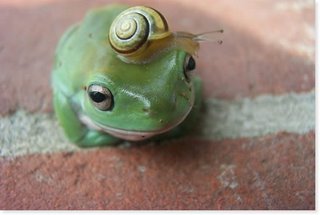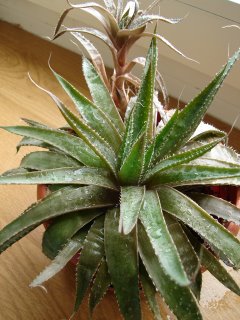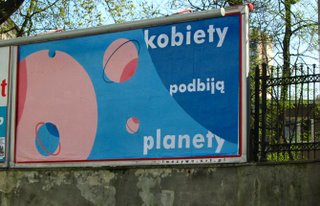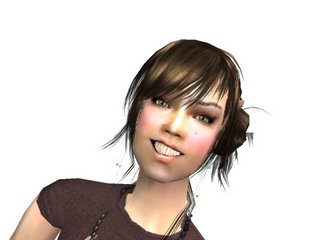dinki
Saturday, May 05, 2007
Monday, April 23, 2007
Tuesday, January 09, 2007
Sunday, September 10, 2006
Bjork evening
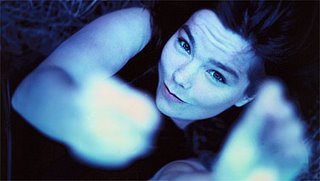
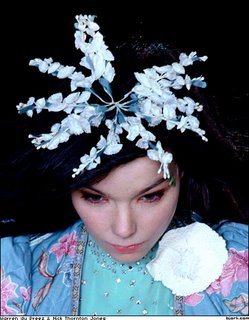
If travel is searching
And home what's been found
I'm not stopping
I'm going hunting
I'm the hunter
I'll bring back the goods
But I don't know when
I thought I could organize freedom
How Scandinavian of me
~en-cha-le-li~
~en-cha-le~
You sussed it out, didn't you ?
yeah!
You could smell it
So you left me on my own
To complete the mission
Now I'm leaving it all behind
I'm Going hunting
I'm the hunter, I'm the hunter
I'm going hunting
I'm the hunter
Wednesday, September 06, 2006
Saturday, September 02, 2006
A year ago in America pt.2
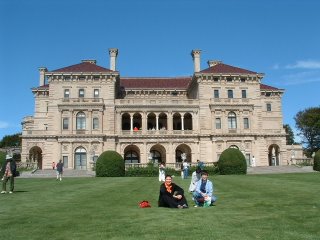
...Breaker`s Mansion, New Port, Rhode Island, accompanied by charming young gentleman named Andy...
That was the last day of my East Coast Tour, also the last day in U.S. The Mansion was nice, I was suprised though, because it was considered almost ancient... I forgot about relatively short history of USA. With all its beauty this place was too lifeless for me. I liked Boston more. I even cried there.

Somebody wrote this about the place that made me cry:
"I wasn't expecting to go to the Holocaust Memorial while I was in Boston, but when we walked the Freedom Trail, it was right off the path. It is truly one of the most remarkable memorials I have ever seen - and I've been to many of them. It is very tastefully done.It tells, in survivors' own words, of the horrors that were in the death camps.
On the six glass towers (representing the six Nazi death camps) registration numbers of all who entered are etched into the glass. It is unnerving to see how many there are. The Nazis intended to wipe out the Jewish population (along with several others that were considered 'sub-human'), and they murdered over half of them. I'm glad to see that today there is at least something that reminds us of the ills that lurk in this world. I hope it teaches us to stay on our toes and not let ANYTHING like this happen again."
I get the shivers when I think about it.
Wednesday, August 30, 2006

WE ALWAYS RUN
We always run away, from town to town,
we- intellectuals:
small and shivering, a tribe without a tribe,
a class of ineffectuals.
From country to country, we shift about with our families:
we each have a gramophone,
millions of us. But it's no use. They keep asking:
"Which country is your own ? "
And since we don't know, we can only weep
oceans of salt oblations.
Beneath fake palms we write artificial letters
and post them in dirty stations.
Translated by Jerzy Peterkiewicz and Burns Singer
Source: www.ap.krakow.pl
This poem needs little explanation. It is one of the many famous poems by Gałczyński about a black period in his life. The poet's absolute love for, and faith in, his wife Natalia are as much the bedrock of this poem as is the hopeful and listless mind of the poet.
Letter From a POW
My dearest, my heart-call,
Goodnight my love-you are tired,
I see your shadow on the wall.
The night is so Spring inspired.
You are my all in this world,
How to make famous your name?
You're my water in Summer,
My gloves in Winter's bane.
You are my good fortune, Vernal
Summery, Wintry and Autumnal.
So call to me goodnight,
Whisper it through your sleepy mouth.
But what is the payment for this sight,
The blissful paradise by your side.
In my world you are the light,
The songs of my road that will guide.
Introduction and translation by Barry Keane
Source: Warsaw Voice

Konstanty Ildefons Gałczyński (January 23, 1905 - December 6, 1953) was a Polish poet.
Born in Warsaw, he moved to Moscow at an early age and upon returning to Poland studied classical and English language at the University of Warsaw.
He debuted in 1923 and was a member of the Kwadryga group of poets. In 1930, he married Natalia Avalov.
Mobilised during the Polish September Campaign, he spent most of the war as a prisoner of war. Returning to Poland in 1946, he was a contributor to the Przekrój and Tygodnik Powszechny magazines, among others. However, many of his post-war poems, including a vituperative diatribe against Czesław Miłosz, are largely ignored as supportive of the Communist regime.
Among his most known works are the satirical mini-pieces of "Teatrzyk Zielona Gęś" ("Green Goose Theatre").
He married Lucile Wolanowska in the 1940s and had a son on 22 January 1946.
Source: Wikipedia








